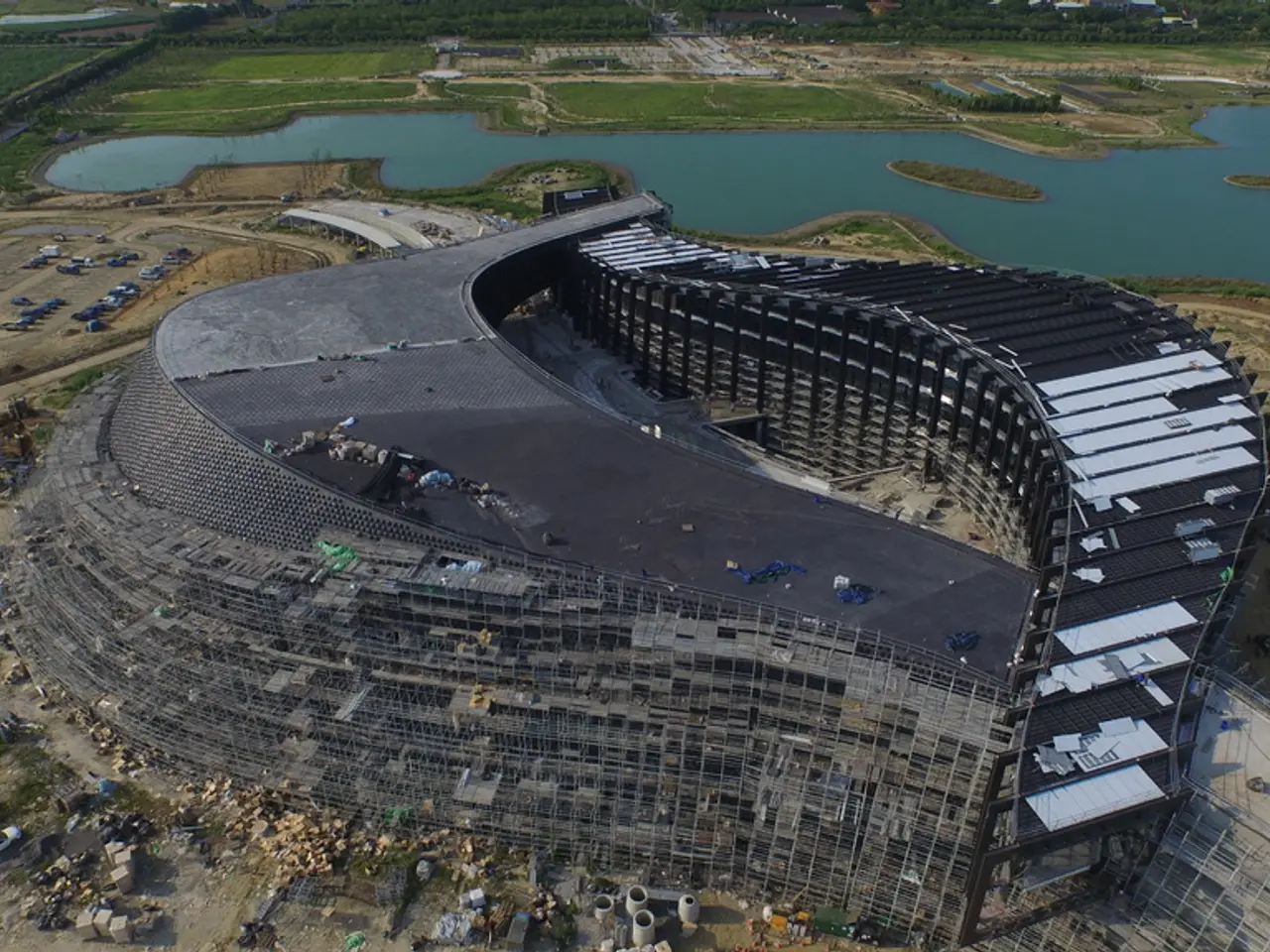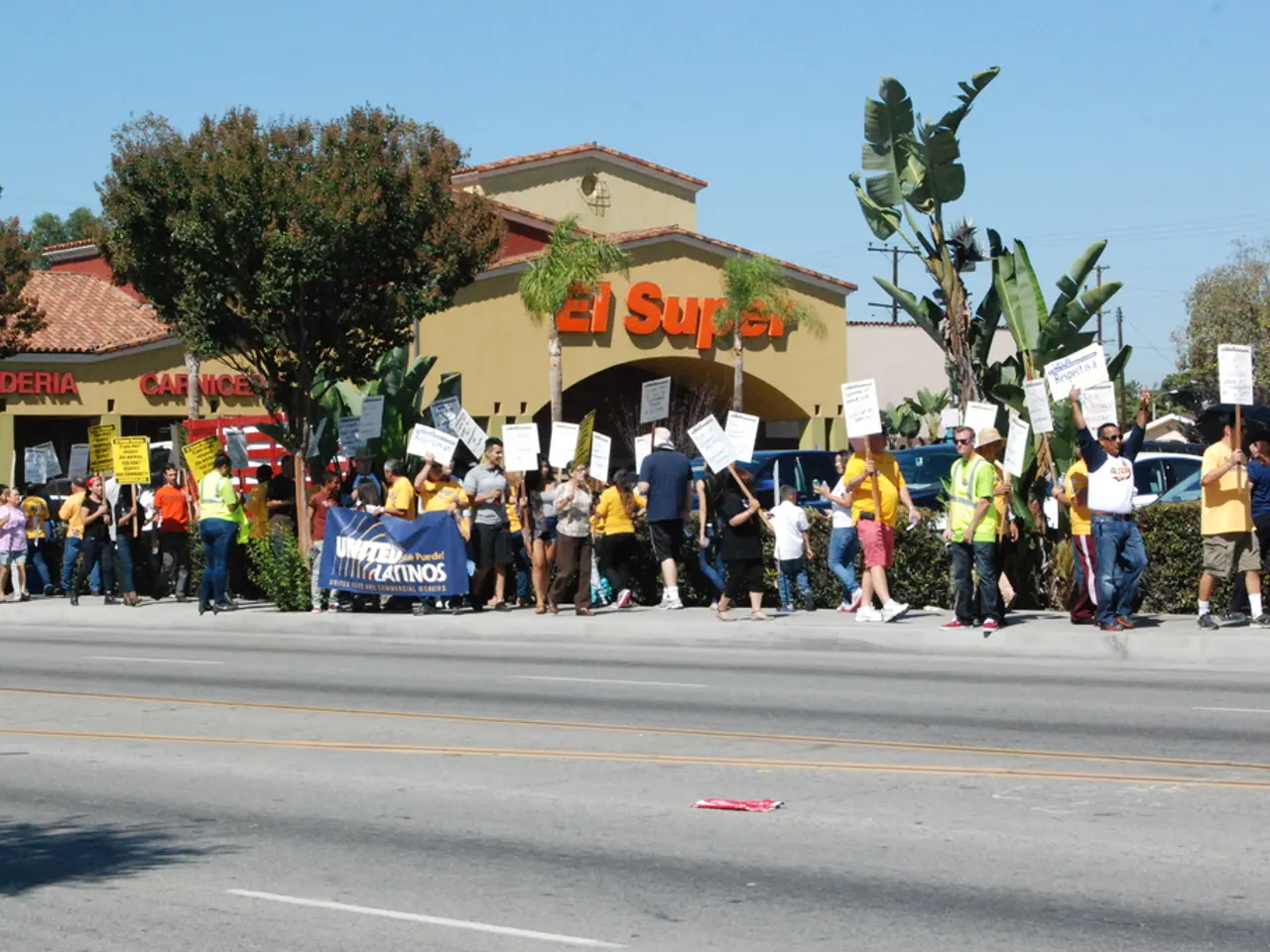Hyundai Motor CEO announces reduction of uncertainties in U.S. operations due to tariff agreement
Hyundai Motor Group Navigates New US Tariff Landscape
Hyundai Motor Group, the South Korean automotive giant, has welcomed the recent reduction in tariffs on Korean vehicle exports to the United States. The new tariff agreement, which lowers the rate from 25% to 15%, has been hailed as a significant step in strengthening ties between Korea's technology base and the US manufacturing network.
Jose Munoz, CEO of Hyundai Motor Company, expressed appreciation for the efforts of the government departments and the National Assembly in resolving the tariff issues with the US. He believes the new arrangement reinforces Hyundai Motor Group's localization strategy while maintaining the seamless collaboration between Korean design, engineering, and manufacturing teams and American manufacturing operations.
The tariff reduction, however, came at a cost. During the second quarter, Hyundai Motor Group estimated an operational loss of 828.2 billion won ($591.7 million) due to the 25% tariff. The reduction in tariff has resulted in a 15.8% on-year decline in Hyundai Motor Group's operating profit to 3.6 trillion won during the same period.
In response to the new tariff regime, Hyundai Motor Group plans to mitigate the impact through comprehensive innovation initiatives. A key part of this strategy is a significant increase in localization and investment in the US. By 2028, the company aims to invest $21 billion to expand manufacturing operations and create American jobs, potentially over 100,000 direct and indirect positions.
This investment will see Hyundai expanding its manufacturing footprint with facilities such as the Metaplant America in Georgia, expanded operations in Alabama, teams in Michigan, and a planned steel facility in Louisiana. This integrated American manufacturing ecosystem is designed to reduce tariff exposure by producing more vehicles domestically.
Despite these moves, Hyundai faces earnings pressure from the remaining 15% tariff. Analysts estimate that this will reduce profits by billions of won. The company may have to absorb some costs rather than pass them fully to customers to maintain competitiveness in the US market.
Hyundai’s efforts to maintain affordability, such as offering competitive lease prices on locally produced EV models like the IONIQ 5 and IONIQ 9, support this approach but also reflect potential margin pressures due to tariffs and subsidy changes.
The new tariff agreement also impacts Japanese and European automakers, which had faced a 2.5% tariff in the US, and are now subject to the same 15% rate under their own trade deals, shifting the competitive landscape.
Hyundai Motor produced over 200,000 vehicles in the US during the first half of 2025, but the higher tariff significantly impacted the business as more than half of its US sales still rely on imports from Korea. The company's strategic response to the new tariff regime is a testament to its resilience and commitment to the US market.
The tariff reduction has prompted Hyundai Motor Group to invest significantly in the US finance sector, aiming to bolster local operations and create jobs. By 2028, the company plans to inject $21 billion into the US industry with the intention of expanding manufacturing plants and potentially creating over 100,000 jobs.
Moreover, Hyundai Motor Group's strategic business decisions, such as increasing localization and lowering prices on electric vehicles like the IONIQ 5, are designed to balance profits and maintain competitiveness in the US finance and industry landscape.




